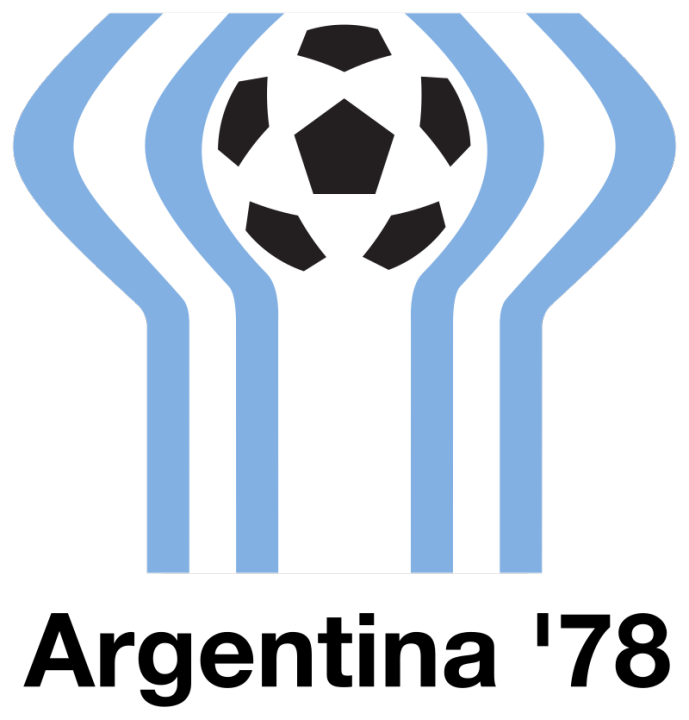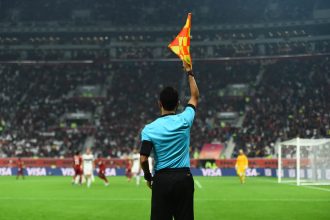The year was 1978, and football fans around the world eagerly awaited the prestigious FIFA World Cup. Hosted by Argentina, the tournament would showcase the talents of some of the greatest footballers of that era. From the intense matches to the unforgettable moments, the 1978 World Cup left an indelible mark on the history of the sport. Let us take a trip down memory lane and revisit the excitement and drama of this great tournament.
Argentina, known for its passionate love for football, was the proud host of the 1978 World Cup. The tournament was played across several iconic stadiums, including Estadio Monumental, Estadio José Amalfitani, and Estadio Córdoba, each providing a vibrant backdrop for the matches.

The format of the competition stayed the same as in 1974: 16 teams qualified, divided into four groups of four. Each group played a round-robin with two points for a win and one for a draw, and goal difference was used to separate teams levels on points. The top two teams in each group would advance to the second round, where they would be split into two groups of four. The winners of each group would play each other in the final, and the second-place finishers in the third-place match.
Teams:
Iran, Austria, France, Hungary, Italy, Netherlands, Poland, Scotland, Spain, Sweden, West Germany, Mexico, Argentina (hosts), Brazil, Peru, and Tunisia.

The official mascot of this World Cup was Gauchito, a boy wearing an Argentina kit. His hat (with the words ARGENTINA ’78), neckerchief, and whip are typical of gauchos.
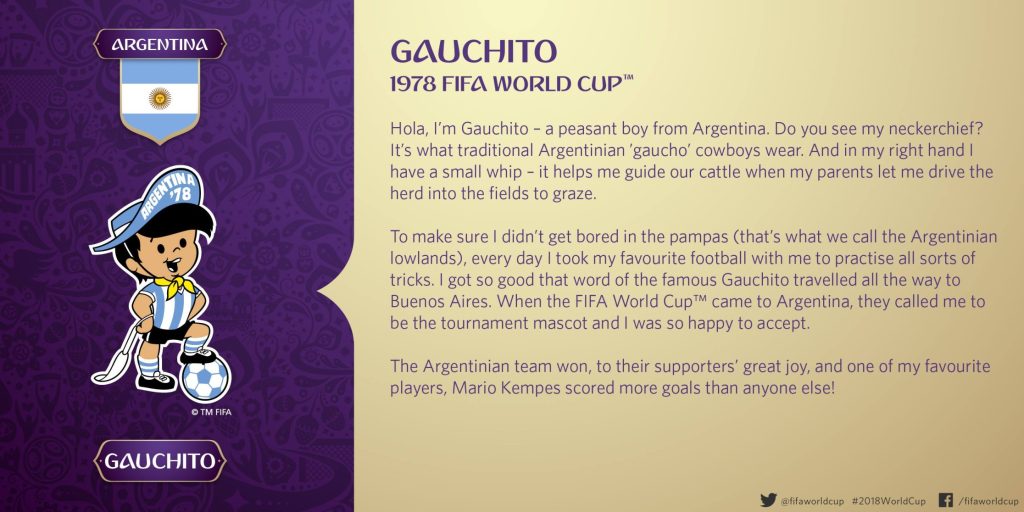
The 1978 World Cup was filled with thrilling encounters and unforgettable moments. From the stunning performance of Mario Kempes to the unforgettable clash between the Netherlands and Italy, the tournament offered football enthusiasts a spectacle to remember.
Second Round:
In the all-European Group A, the Netherlands got off to a flying start by thrashing Austria 5–1, with Johnny Rep scoring two of their goals. In a rematch of the 1974 final, the Dutch then drew 2–2 with West Germany, who had previously shared a goalless game with Italy. The Italians beat Austria 1–0, and so the Netherlands faced Italy in their last group game knowing that the winners would reach the final. Ernie Brandts scored an 18th-minute own goal to put Italy ahead at half-time, but he made up for his mistake by scoring at the right end in the fifth minute of the second half. Arie Haan got the winner for the Dutch with 15 minutes remaining, and the Netherlands had reached their second successive World Cup Final. In the game known as the miracle of Cordoba, West Germany was surprisingly beaten by Austria 2–3 which marked their end as World Champions.
Group B was essentially a battle between Argentina and Brazil, and it was resolved in controversial circumstances. In the first round of group games, Brazil beat Peru 3–0 while Argentina saw Poland off by a score of 2–0. Brazil and Argentina then played out a tense and violent goalless draw, so both teams went into the last round of matches with three points. Argentina delayed the kick-off of its last match to await the result of the Brazil-Poland encounter. Brazil won by a 3–1 score, meaning Argentina had to beat Peru by four clear goals to reach the final but they managed to do it. Trailing 2–0 at half-time, Peru simply collapsed in the second half, and Argentina eventually won 6–0. As previously noted, rumors suggested that Peru might have been bribed or threatened into allowing Argentina to win the match by such a large margin. However, nothing could be proved, and Argentina met the Netherlands in the final. Brazil took third place from an enterprising Italian side with Nelinho scoring a memorable goal and were dubbed “moral champions” by coach Cláudio Coutinho, because they did not win the tournament, but did not lose a single match.
The final, Argentina vs Netherlands, was also controversial, as the Dutch accused the Argentines of using stalling tactics to delay the match. The host team came out late and questioned the legality of a plaster cast on René van de Kerkhof’s wrist, which the Dutch said allowed tension to build in front of a hostile Buenos Aires crowd.
Mario Kempes opened the scoring for the hosts before Dick Nanninga equalized a few minutes from the end. Rob Rensenbrink had a glorious stoppage-time opportunity to win it for the Netherlands but his effort came back off the goalpost. Argentina won the final 3–1 after extra time after Daniel Bertoni scored and Kempes, who finished as the tournament’s top scorer with six goals, added his second of the day. The Netherlands, because of the controversial game events, refused to attend the post-match ceremonies after the match ended. They had lost their second consecutive World Cup final, both times to the host nation, after losing to West Germany in 1974. Argentina won 5 games but became the first team to win the World Cup after failing to win two matches, where they had lost to Italy in the first round and drawn with Brazil in the second round. Four years later, Italy would win the next World Cup despite failing to win three games.
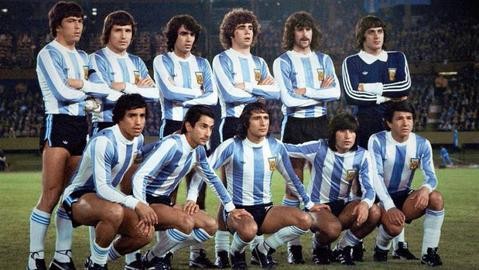
Mario Kempes, the Argentinian striker, emerged as the star of the tournament. With his exceptional goal-scoring prowess and skillful play, Kempes showcased his talent on the world stage. He scored a total of six goals throughout the tournament, including two crucial goals in the final against the Netherlands, leading Argentina to their first World Cup victory.
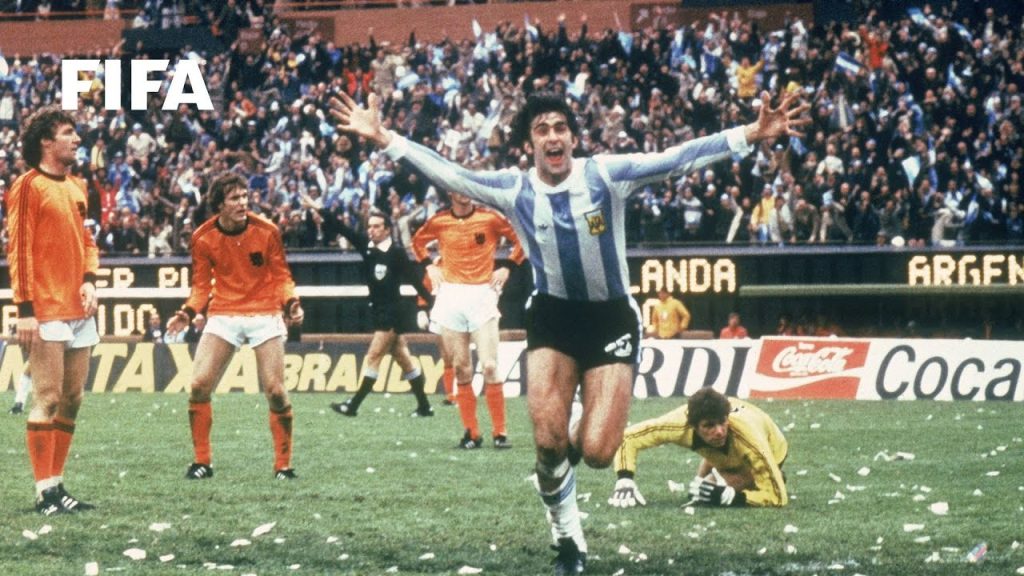
The 1978 World Cup was not without its controversies. Political tensions and suspicions of match-fixing cast a shadow over the tournament. Nevertheless, the event’s impact on Argentinian football and its significance in the country’s history cannot be denied. It marked the beginning of a golden era for Argentine football and ignited a passion that would endure for generations.
The 1978 FIFA World Cup in Argentina was a captivating event that captured the hearts of football fans worldwide. It showcased remarkable talent, intense rivalries, and unforgettable moments that have become part of football folklore. From the heroics of Mario Kempes to the passion of the Argentinian supporters, the tournament left an indelible mark on the history of the sport. The 1978 World Cup will forever be remembered as a thrilling chapter in football’s rich tapestry, celebrating the beautiful game at its finest.

The 1978 World Cup was not without its controversies. Political tensions and suspicions of match-fixing cast a shadow over the tournament. Nevertheless, the event’s impact on Argentinian football and its significance in the country’s history cannot be denied. It marked the beginning of a golden era for Argentine football and ignited a passion that would endure for generations.
The 1978 FIFA World Cup in Argentina was a captivating event that captured the hearts of football fans worldwide. It showcased remarkable talent, intense rivalries, and unforgettable moments that have become part of football folklore. From the heroics of Mario Kempes to the passion of the Argentinian supporters, the tournament left an indelible mark on the history of the sport. The 1978 World Cup will forever be remembered as a thrilling chapter in football’s rich tapestry, celebrating the beautiful game at its finest.

